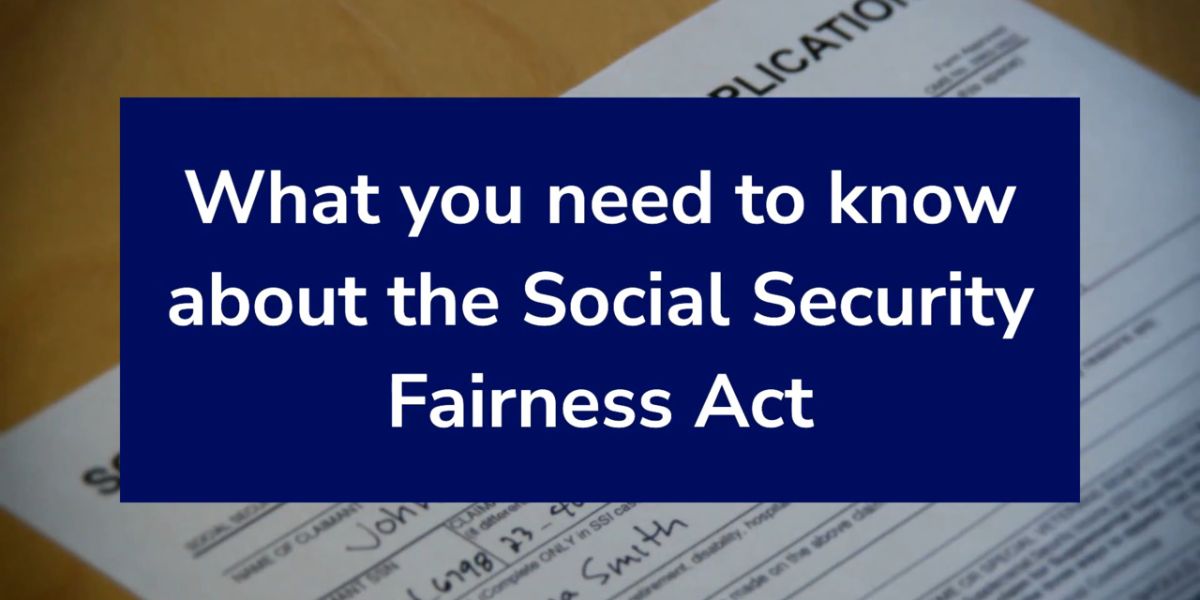As lawmakers continue to address long-standing issues within the Social Security system, one potential change could have a significant impact on millions of Americans—especially when it comes to Medicare premiums. The proposed Social Security Fairness Act is gaining attention for its potential to change how Medicare premiums are calculated and who bears the burden of those costs.
If passed, this legislation could offer financial relief to some beneficiaries while reshaping the way Medicare premiums are determined. Here’s what you need to know about the Social Security Fairness Act and how it might affect your Medicare premiums.
What is the Social Security Fairness Act?
The Social Security Fairness Act is a piece of proposed legislation designed to address inequities in the way Social Security benefits are calculated, particularly concerning government employees who are not part of the Social Security system. While the primary focus of the act is on addressing the Windfall Elimination Provision (WEP) and the Government Pension Offset (GPO), it also touches on changes to how Medicare premiums are calculated for certain beneficiaries.
Currently, the WEP reduces Social Security benefits for individuals who receive pensions from jobs where they did not pay into Social Security, such as state or local government workers. The GPO affects spouses or widows/widowers who are eligible for both a government pension and Social Security benefits, potentially reducing their survivor benefits. The Social Security Fairness Act seeks to eliminate or reduce these penalties, which could indirectly impact how Medicare premiums are calculated for those affected by these provisions.
The Link Between Social Security and Medicare Premiums
For most people, the amount they pay for Medicare Part B (medical insurance) premiums is based on their income as reported on their tax returns. Generally, the more you earn, the higher your Medicare premiums will be. However, there is a twist for people whose Social Security benefits are subject to reductions due to the WEP or GPO.
When someone is affected by the WEP or GPO, their Social Security benefits may be lower than they would be otherwise. This means they might have less income from Social Security to cover the cost of their Medicare premiums, which are often deducted directly from Social Security payments. As a result, some individuals may find themselves facing higher out-of-pocket costs for Medicare premiums, despite having lower-than-expected Social Security benefits.
How the Social Security Fairness Act Could Change Medicare Premiums
While the Social Security Fairness Act primarily targets the WEP and GPO, it has the potential to influence Medicare premiums by:
- Reducing the Impact of the Windfall Elimination Provision (WEP): The act proposes to reduce or eliminate the WEP, which would increase Social Security benefits for those who have worked in non-Social Security covered jobs. If this happens, it could increase the amount of Social Security income that beneficiaries receive. With higher Social Security benefits, these individuals might have more money available to cover their Medicare premiums, reducing their financial burden.
- Addressing the Government Pension Offset (GPO): Similarly, changes to the GPO could impact individuals who receive a government pension and are entitled to survivor benefits. If the GPO is reduced or eliminated, individuals might be able to retain more of their Social Security survivor benefits. This would help these individuals pay for their Medicare premiums without facing a significant loss in income.
- Improved Affordability of Medicare Premiums: By adjusting how Social Security benefits are calculated for those affected by the WEP and GPO, the Social Security Fairness Act could indirectly improve the affordability of Medicare premiums for these individuals. This could ease the financial strain on retirees who are often caught between the challenge of lower-than-expected Social Security benefits and rising healthcare costs.
Who Would Be Affected by the Social Security Fairness Act?
The proposed changes in the Social Security Fairness Act would primarily affect individuals who:
- Worked in government jobs where they did not pay into Social Security and are affected by the WEP.
- Receive a government pension and are impacted by the GPO, particularly widows, widowers, and divorced spouses who are eligible for both a pension and Social Security benefits.
While this legislation would not directly impact all Medicare beneficiaries, it could provide relief for those who are struggling with the combination of reduced Social Security benefits and rising Medicare premiums. The changes would particularly benefit retirees who have spent years working in public sector jobs without contributing to Social Security.
What Does This Mean for You?
If you are someone who is currently affected by the WEP or GPO, or if you work in a job where you do not pay into Social Security, you may want to follow developments related to the Social Security Fairness Act closely. While the bill is still in the legislative process, if it passes, it could provide significant financial relief by improving the way Social Security benefits are calculated and how Medicare premiums are determined.
For those who are not impacted by the WEP or GPO, it’s still important to understand the connection between Social Security and Medicare. Even small changes in the system could affect your long-term retirement planning, especially as Medicare premiums continue to rise.
The Social Security Fairness Act has the potential to significantly change how Medicare premiums are calculated for individuals impacted by the Windfall Elimination Provision (WEP) and the Government Pension Offset (GPO).
By reducing or eliminating these provisions, the act could increase Social Security benefits for some individuals and make it easier for them to afford their Medicare premiums.
While the bill is still in progress, those who are affected by the WEP or GPO should pay close attention to the legislation and consider how potential changes could impact their retirement and healthcare costs in the future.


 by
by 




